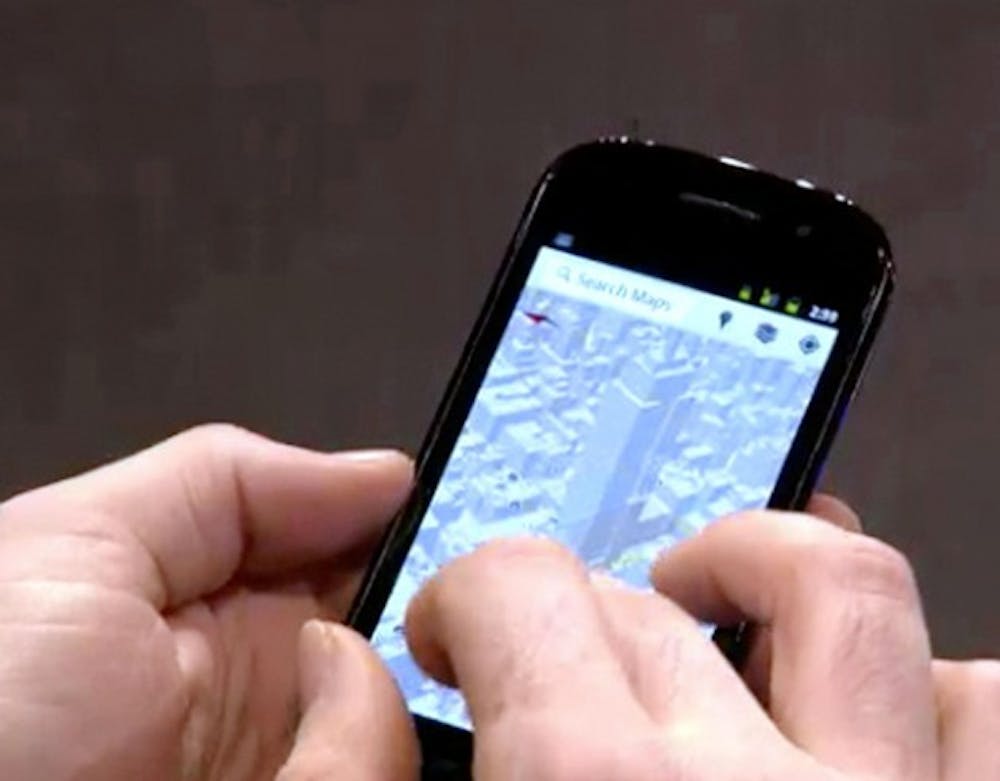UB's department of computer science and engineering gave out 200 free smartphones to help researchers create a new type of infrastructure to conduct experiments.
The new campus-wide project mainly aims to improve smartphones. Starting at the end of August, about 170 students who chose to partake were given an Android Samsung Nexus S, with an additional 30 given to various staff and faculty members.
Geoffrey Challen and Steven Ko are assistant professors in the department of computer science and engineering and are taking the lead in the project, which they named "Phonelab." They clarify that Phonelab isn't an experiment itself; instead, it is a test bed that makes experimentation easier.
"What we are doing is essentially building a scientificinstrument that can be used for various research studies," Ko said in an email. "We are building this infrastructure so that researchers from both inside and outside of UB can use it."
Phonelab was made possible because of support from Google and Sprint and a $1.3 million grant from the National Science Foundation. Google helped fund the first Phonelab prototype application, and UB was able to negotiate a discounted price with Sprint in order to continue the project.
Participants will only be asked to take part in experiments for a few hours each month. These experiments can range anywhere from taking surveys to testing apps.
In exchange for participating in the project, members also received the first year of service from Sprint for free, which includes unlimited voice calling, unlimited messaging and unlimited data. After the first year, the participant can receive discounted service at under $50 a month, only if he or she chooses to continue to partake in the project.
Phonelab will also allow researchers to transparently collect data from the smartphones. For example, they will be able to study software performance and network stability and then find ways to improve this and other issues like the user interface and smartphone security.
"The nice thing about test beds like this is that they are nonspecific," Challen said in an email. "They enable us to do a really large variety of projects and let students go off in their own direction."
Challen also assured participants that they would have complete privacy in using the phone and they can choose which experiments to participate in at their own discretion.
"We want people to use the phone normally as their primary device," he said.
An Institutional Review Board at UB will approve each experiment. This will ensure the application is safe and only collects necessary data.
According to CNN, over half of all cell phone in use in the United States are smartphones. Phonelab is the first large-scale test bed.
Bhaavyaa Kapoor, another member of the Phonelab team, is working toward her master's degree in computer science at UB. She is excited for the project to take form and knows how important this test bed is.
"Phonelab provides a great infrastructure for researchers to deploy the application at a very large scale," Kapoor said. "Previously that was not possible."
Before this initiative, getting realistic information from smartphone users was nearly impossible because of the cost and difficulty of finding a significant number of participants and having any control over them.
"By developing Phonelab, we are accelerating smartphone experimentation by providing experimenters access to a large group of users that already have phones and an incentive to participate," Challen said.
Phonelab separates itself from other similar projects because of its network of people. Having a test bed of real smartphone users allows for more accurate data that could lead to more practical solutions.
Anudipa Maiti, a Ph.D. student who is working on the project, points out that most smart phone research is all based on assumptions, but with Phonelab, research can be based on collected data.
"In most research papers we make assumptions and based on those assumptions, we create solutions," Maiti said. "Those solutions may be great theoretically, but in the practical world they don't make much sense. But when you have real users, you get real data which is important in developing real solutions."
Although this is the first semester of the operation, the project began a year and a half ago when Challen, Ko and their team began to create the Phonelab software.
With the first round of experiments to begin next month, Phonelab will begin its journey to improve the smartphone. Challen sees this project as a great opportunity, and he doesn't understate the importance of smartphones to the world of innovation and technology.
"Smartphones already constitute the most pervasive deployment of computing technology we have ever accomplished, and the technology is just starting to come to fruition," Challen said. "I think in a decade we'll look back on this technology as being more important than the Internet and more transformative than the cloud."
Challen and Ko plan to add an additional 250 phones to the test bed next year, and another 250 in 2014. They hope UB and Phonelab become the center of smartphone innovation.
Email: news@ubspectrum.com





